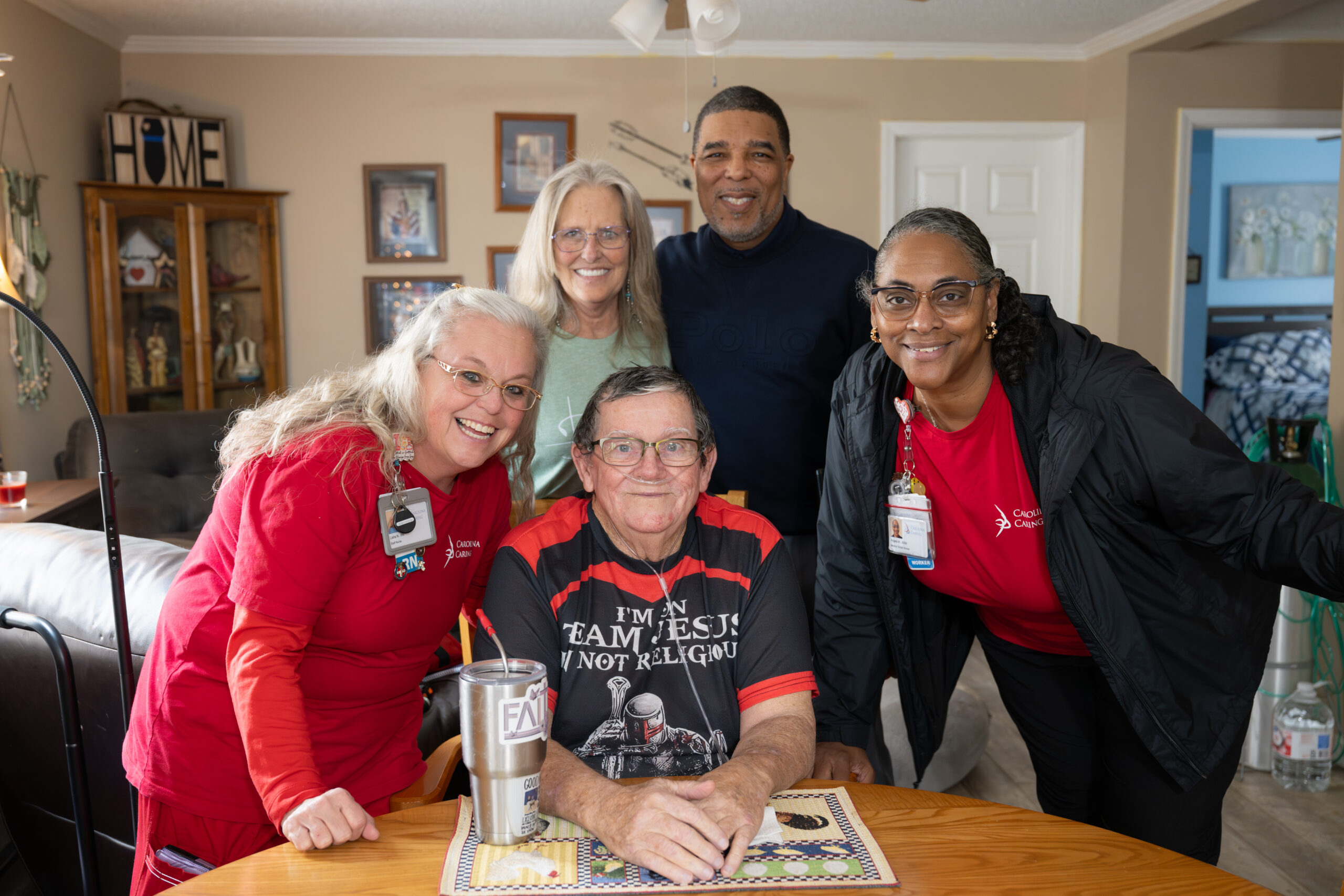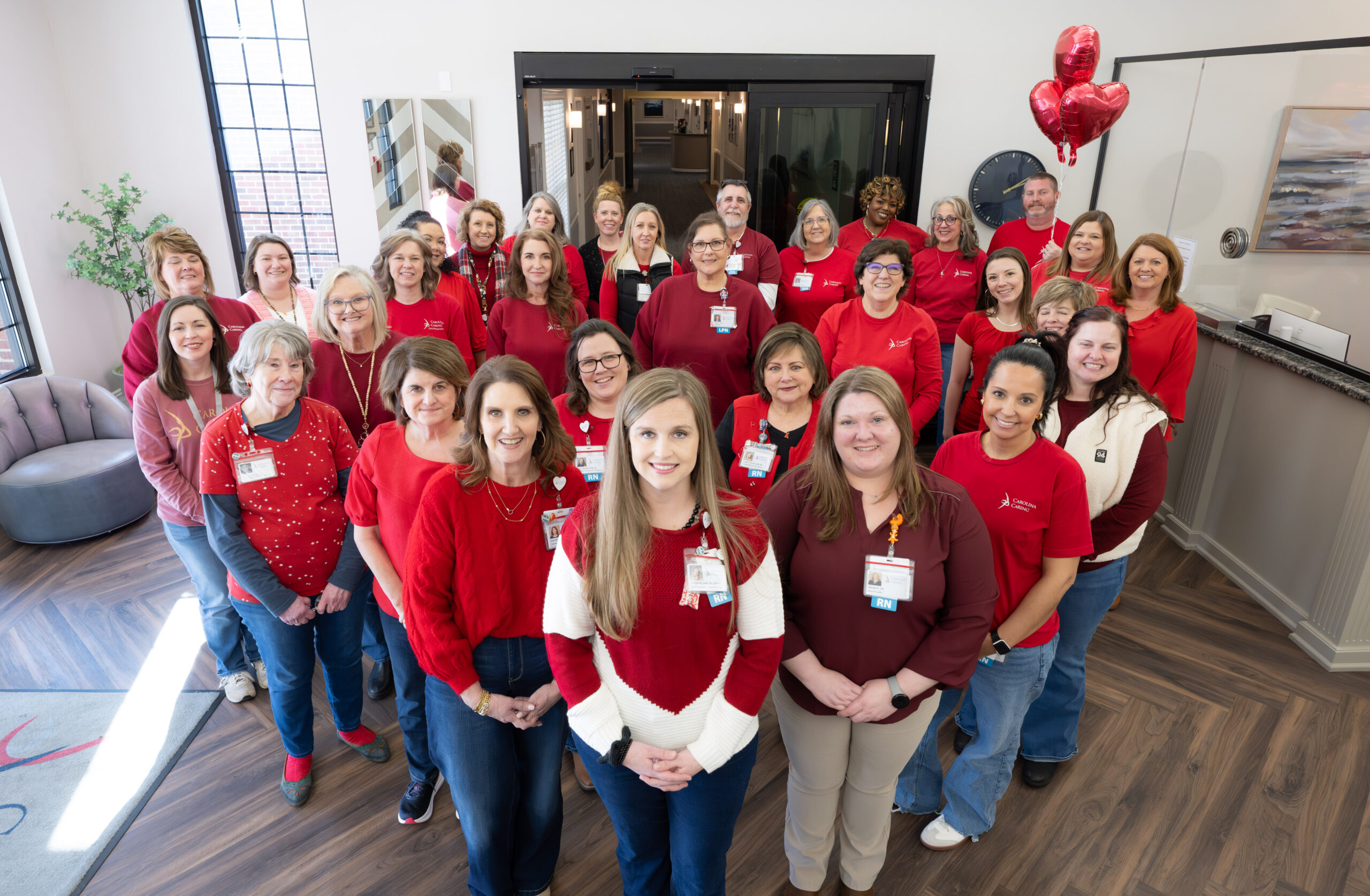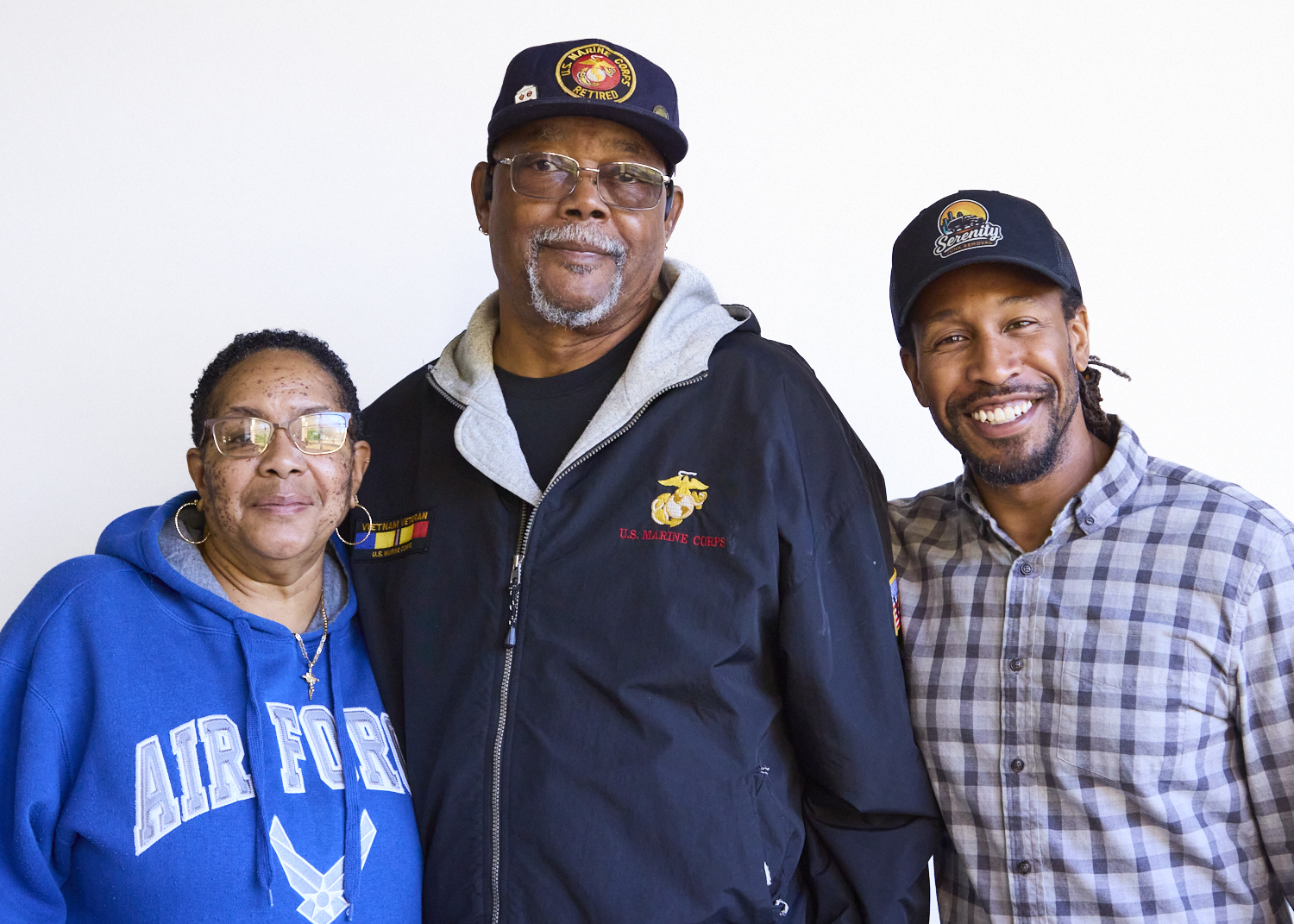Hospice Care in North Carolina
Hospice Care
Navigating the final months of a loved one’s life is a deeply emotional journey. At Carolina Caring, we recognize the challenges you are currently facing and are here to help you honor your family member or dear friend by providing dignified end-of-life care.
To learn more about our hospice care services in North Carolina, call 828.466.0466 or contact us online. No referral is necessary.
Download our eBook
Download our comprehensive Hospice & Palliative Care eBook to confidently navigate the emotional and practical aspects of hospice caregiving.
Hospice E-Book Download

What Is Hospice Care?
Hospice care provides compassionate and comprehensive support to individuals with a terminal illness. The primary goal of hospice care is to allow patients to live as fully as possible in their final months of life.
At Carolina Caring, we understand this time is difficult for both patients and their loved ones. With this in mind, our interdisciplinary team works tirelessly to ensure your family receives the utmost care and attention. Available services include:
Pain and Symptom Management
We want your loved one to live their final moments with grace and dignity. That’s why we focus on providing relief from pain and other distressing symptoms using medications as well as non-pharmacological therapies.
Emotional Support
Facing a terminal illness can be an intensely emotional journey. Thankfully, our counselors, social workers, and chaplains are here to help patients and family members process their grief.
Spiritual Guidance
At Carolina Caring, our chaplains help patients explore existential questions about death and the afterlife. At a patient’s request, our chaplains can also facilitate religious practices and rituals, such as prayer sessions.
Support with Daily Tasks
As individuals near the end of life, basic activities like bathing, dressing, toileting and eating can become increasingly difficult. Our hospice care team helps with these activities to help patients maintain comfort and dignity.
Bereavement Services
When the time comes, our Center for Grief & Healing offers support to help families navigate the profound loss of their loved ones. This includes counseling, participation in grief support groups and access to various resources.
Timing
Hospice Care: Offered when a patient has a terminal prognosis with a life expectancy of six months or less.
Palliative Medicine: Can begin at any stage of a serious illness, not necessarily when the prognosis is terminal.
Treatment Goals
Hospice Care: Primarily focuses on comfort care and enhancing quality of life.
Palliative Medicine: Includes symptom management and pain relief but may also incorporate curative or life-prolonging treatments.
Scope of Care
Hospice Care: Comprehensive care provided near the end of life, including emotional and spiritual support for patients and their families.
Palliative Medicine: Integrated into ongoing treatment plans to alleviate symptoms and improve overall well-being.
Hospice Care vs. Palliative Medicine
Though hospice care and palliative medicine in North Carolina are often considered one and the same, there are some key differences between these two levels of care.
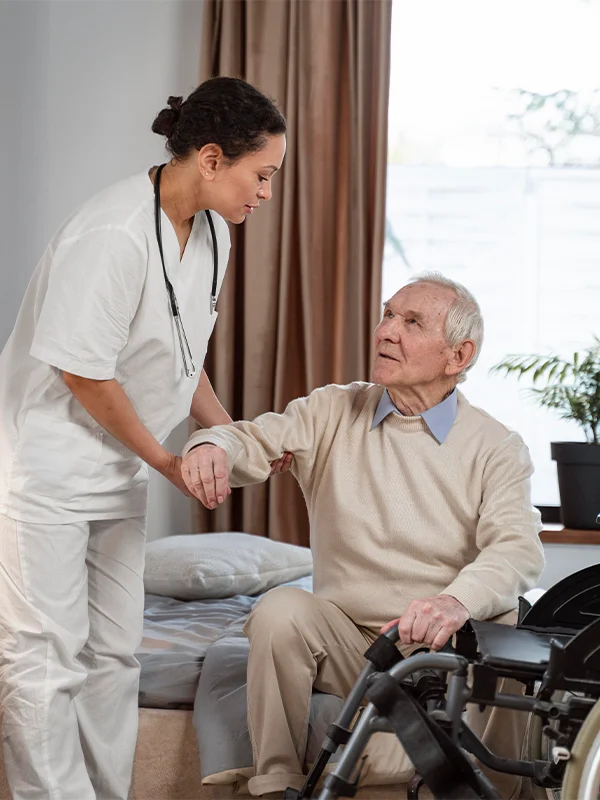
When Is It Time for Hospice?
Knowing when to consider hospice care for a loved one is never easy. However, there are some clear signs that additional support is needed. These include:
- Life expectancy of six months or less
- Significant decline in health despite ongoing medical treatments
- Frequent emergency room visits and hospitalizations
- Uncontrolled pain and distressing symptoms
- Decreased ability to complete activities of daily living (e.g., bathing, dressing, eating)
Keep in mind that the decision to pursue hospice services involves discussions with healthcare providers, family members and the patient themselves to ensure their wishes and preferences are respected. Wondering about the differences between hospice, palliative care, and home-based care options? Our comprehensive guide can help you navigate these important choices.
If you don’t know where to begin or how to initiate these conversations, call us at 828.466.0466 or contact us online. We are here to walk you through every step of this journey.
What Our Patients Say
“The Carolina Caring team was amazing, thoughtful and kind. In the moments of fear, sadness and confusion, they educated my family and provided comfort to not only our grandmother but to all of us.”
Ashley
Granddaughter of Carolina Caring Patient
“I cannot express how wonderful all staff have been during my mom’s final 5 months at home and then in the nursing home in Gastonia. They surely made mom’s last months comfortable. A wonderful team of true professionals!”
Ronald
Son of Carolina Caring Patient
“My mother has been in their care for almost a year and my father before that. Every single person I have met was exceptional and almost empathic. Anticipating my needs , answering questions, and gently caring for the whole family.”
Michael
Son of Carolina Caring Patient
“The staff is very proficient, caring, and understanding of anything that may be happening. They keep your loved one comfortable and they check on your loved one once an hour unless you need anything in between checks.”
Elizabeth
Daughter of Carolina Caring Patient
“Every single employee was professional and comforting. My Dad and our immediate family were cared for with respect through a difficult time. Didn’t feel like a clinical place. Felt like a place of compassion.”
Tim
Son of Carolina Caring Patient
Where We Provide Care
At Carolina Caring, we offer hospice care in North Carolina throughout our 12-county service area:

Our Hospice Houses in North Carolina
Our goal is to provide hospice care wherever the patient is most comfortable, whether that be their home, a hospital or a nursing facility. However, when patients require more intensive care, we typically recommend our in-patient facilities.
These facilities feature 24/7 admissions and are staffed by kind, compassionate professionals who work round-the-clock to provide superlative care.
Catawba Valley Hospice House
3975 Robinson Road
Newton, NC 28658
Robin Johnson Hospice House
5005 Shepards Way Dr
Dallas, NC 28034
Sherrills Ford Hospice House
7473 Sherrills Ford Road
Sherrills Ford, NC 28673

Paying for Hospice Care
Affording hospice care is a concern for many families. Luckily, most aspects of care (e.g., counseling, medications, equipment, supplies and certain therapies) are covered by Medicare, Medicaid and private insurance plans. Medicare also offers hospice coverage, though there are parameters.
Medicare and Hospice Care
According to the Medicare Hospice Benefit, individuals qualify for coverage if they:
- Are eligible for Medicare Part A
- Have a terminal illness with a life expectancy of six months or less
- Elect to receive hospice care instead of curative treatment for their terminal illness
- Receive care from a Medicare-approved hospice program
If a patient surpasses the initial six-month eligibility period, the Medicare Hospice Benefit allows for subsequent benefit periods. Occasionally, patients may improve and no longer meet the criteria for hospice care, leading to discharge. If their condition declines, they can re-enroll in the program. Patients also have the option to discontinue hospice care at any time to pursue curative treatments or choose alternative care providers.
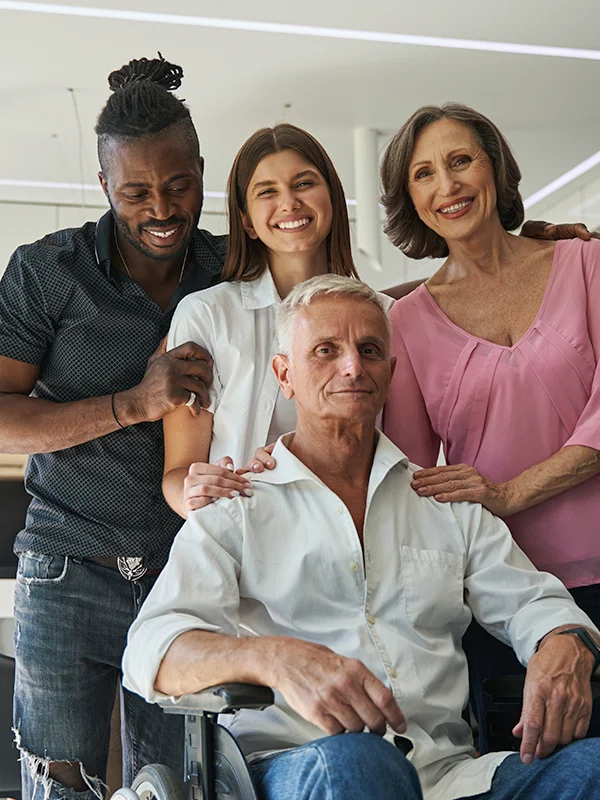
The Carolina Caring Foundation
At Carolina Caring, we firmly believe that no one should be denied access to compassionate and comprehensive end-of-life care because of finances. With this in mind, we work closely with families to determine insurance coverage options and out-of-pocket costs.
The Carolina Caring Foundation is also available for families in need. Through generous private donations and community support, this foundation helps patients and their families find peace during challenging times.
Why Choose Carolina Caring ?
Since 1979, North Carolina families have trusted Carolina Caring to provide their loved ones with hospice and palliative care. Here’s why:
Kind, Compassionate Team Members
Many of our employees joined the Carolina Caring team after experiencing our hospice services firsthand as family members of patients. This personal insight allows them to lead with empathy and compassion.
Gold Seal of Approval
After rigorous evaluations and reviews, we were honored with The Joint Commission’s Gold Seal of Approval for healthcare quality and safety in the field of home care. This recognition demonstrates our commitment to providing the best support possible to our patients.
Award-Winning Care
Our dedication to patient care doesn’t go unnoticed. We are the four-time winner of the Hospice CAHPS Honors Award. This prestigious award recognizes agencies that provide a positive patient experience.
Financial Flexibility
We firmly believe that every patient should have access to exceptional care, regardless of financial circumstances. That's why we never deny services to any family based on their ability to pay.

Receive the Support Your Family Deserves Today
Accepting that a loved one may need hospice care is never easy. At Carolina Caring, we understand how difficult this is and are here to support your family with our three-step enrollment process.
Schedule a Consultation
First, call 828.466.0466 or contact us online. From there, we will schedule a time to meet with you and your family.
Develop a Care Plan
During the consultation, we will talk more about your loved one’s care needs and preferences. We will then work with other members of your loved one’s medical team, such as primary care providers and specialists, to develop a personalized care plan designed to offer him or her optimal quality of life.
Fill Each Day With Purpose
With supports in place, you and your family can focus on making the most of every day.
Send A Message
Contact Form
If you are a current patient or caregiver with Carolina Caring and need to speak to someone about your care, please call our main line at 828.466.0466. For all other inquires please complete this contact form.
Frequently Asked Questions
When is hospice care appropriate?
Hospice care is appropriate when a patient has a terminal illness with a prognosis of six months or less.
Is hospice only for cancer patients?
No, hospice care is not limited to cancer patients. It is available to individuals with any life-limiting illness, providing comprehensive terminal illness care for a range of conditions.
Where is hospice care provided?
At Carolina Caring, we typically provide hospice support through home health care in a patient’s residence. However, we also offer services at assisted living facilities, nursing homes, hospitals, and our in-patient facilities.
How is hospice care paid for?
Hospice care is typically covered by Medicare, Medicaid, and most private insurance plans. Our team can work with you to determine insurance coverage and out-of-pocket costs.
Carolina Caring Reviews
Recent Blog Posts
- Other
DALLAS, NC—When you meet Harvey, a Gaston County local and current patient at Carolina Caring, you...
- Other
NEWTON, NC—February is American Heart Month, a national effort to raise awareness about heart disease, the...
- News
HUNTERSVILLE, NC—“People can never have too many family photos,” says Aaron Libby, the Charlotte-based photographer known...

